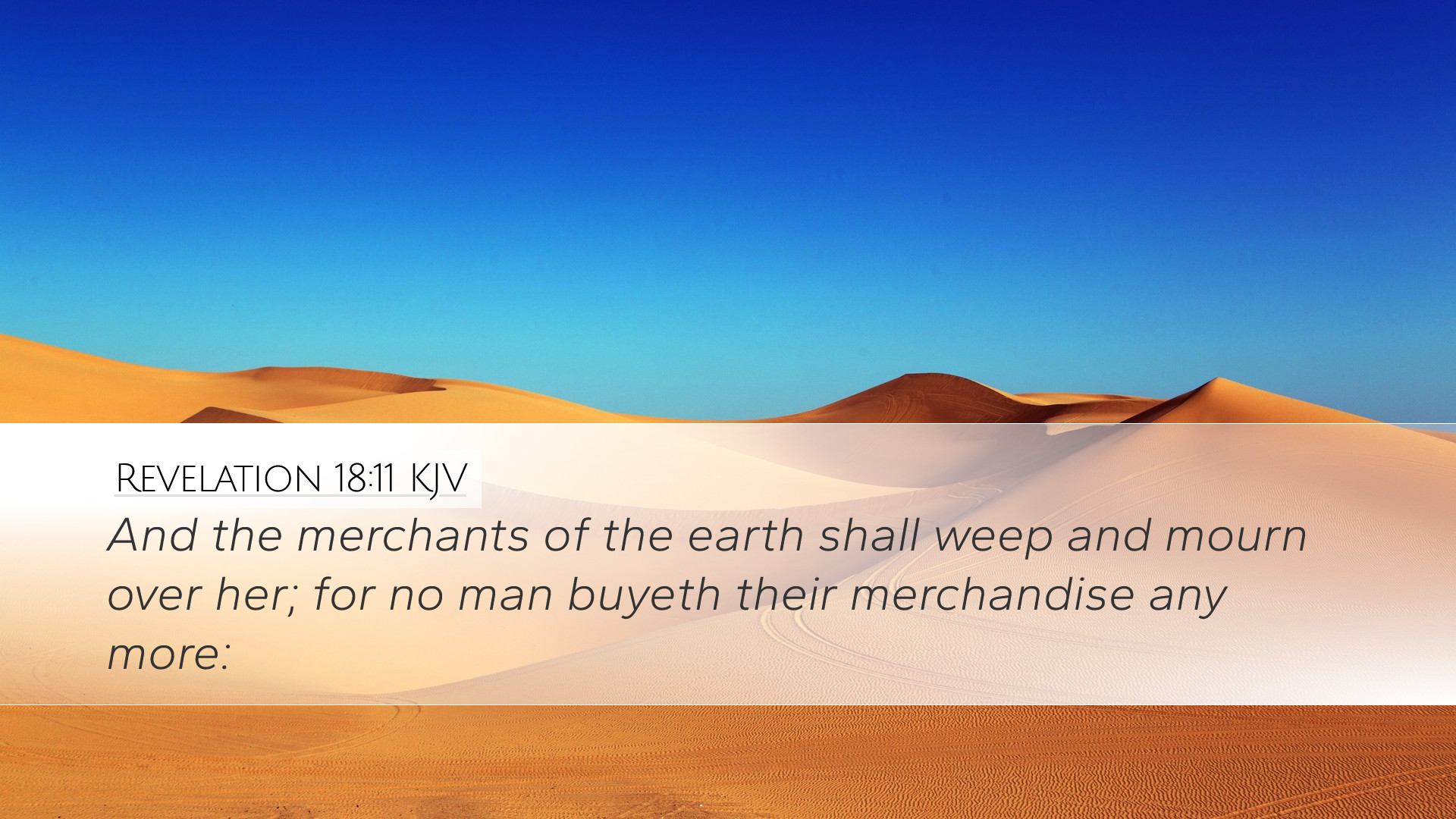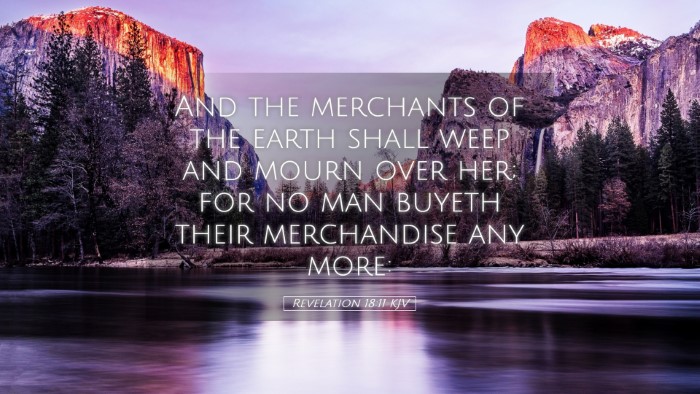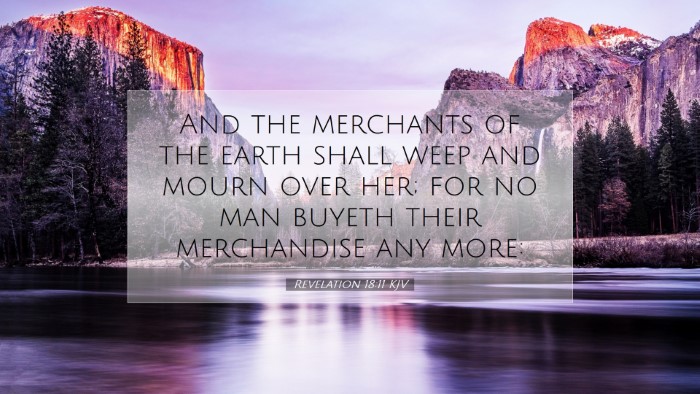Commentary on Revelation 18:11
Revelation 18:11 states, "And the merchants of the earth will weep and mourn over her, for no one buys their merchandise anymore." This verse occurs in the context of the downfall of Babylon, the great city, symbolizing the ultimate destruction of evil and worldly corruption as foretold in the apocalyptic narrative of the book of Revelation.
Contextual Overview
The passage reflects a turning point in the narrative of Revelation, where the fate of Babylon is depicted in vivid imagery. The merchants represent those who profited from the trade and luxury of the city, and their lamentation indicates the economic consequences of divine judgment.
Insights from Public Domain Commentaries
Matthew Henry's Commentary
Materialism’s Folly: Henry emphasizes that the merchants' sorrow represents a loss not just of wealth but of the opportunities to indulge in sin through the commerce associated with Babylon. The lamentation illustrates the spiritual bankruptcy that accompanies the physical and material devastation.
The Depth of Mourning: According to Henry, the mourning of the merchants speaks to their profound attachment to material possessions, revealing how deeply intertwined their identity is with the riches of Babylon. His examination reveals that this tragedy is not merely economic but profoundly spiritual.
Albert Barnes' Notes on the Bible
Weeping and Mourning: Barnes interprets the weeping and mourning as a literal consequence of the loss of commerce and trade. The merchants, who are dependent on the prosperity of Babylon, recognize that their livelihoods are tied to the city, which historically symbolizes decadence and moral corruption.
Significance of Merchandise: Barnes further elaborates on the specific types of merchandise mentioned in the prior verses (Revelation 18:12-13), ranging from luxurious goods to essential commodities. By highlighting this diversity, he shows how the fall of Babylon impacts every facet of life and commerce, leading to a comprehensive collapse of societal structure.
Adam Clarke's Commentary
Symbolism of Merchants: Clarke suggests that the merchants symbolize those who support and thrive on luxury, vice, and sin. Their grief encapsulates the bittersweet reality of losing not only material wealth but the pleasures derived from a sinful lifestyle. Clarke emphasizes the irony that those who profited from immorality now face the consequences of divine justice.
The Fate of the World: Clarke interprets the verse as a prophetic warning of the final destiny of those who prioritize material gain over spiritual integrity. The merchants represent humanity's collective attachment to worldly things, showcasing the ultimate futility of riches in the light of eternal truth.
Theological Implications
This verse serves as a critical reminder of the transient nature of earthly possessions. For pastors and theologians, it raises significant theological questions regarding the role of materialism in faith communities. The grief of the merchants illustrates the dangers tied to idolatry surrounding wealth and security found in temporal matters.
Warnings Against Materialism
- The attachment to material wealth can lead to spiritual blindness.
- The worship of riches often comes at the cost of one's relationship with God.
- Faith communities must strive to emphasize eternal values over earthly gains.
The Nature of True Mourning
The mourning expressed by the merchants is devoid of repentance; thus, it serves to illustrate a profound truth: true sorrow in the context of loss must be coupled with spiritual awakening and reorientation towards God. This reflects a common theme in the biblical narrative where earthly losses can lead to divine opportunities for regeneration and alignment with God's will.
Conclusion
In summary, Revelation 18:11 encapsulates the tragic loss experienced by the merchants of Babylon as a direct consequence of the city’s downfall. Through the insights of Matthew Henry, Albert Barnes, and Adam Clarke, it becomes evident that the verse serves both as a historical consequence of divine judgment and an eternal lesson on the dangers of materialism.
This poignant reminder urges modern believers, scholars, and theologians to evaluate their relationship with material wealth, drawing them closer to the realization that true riches are found in faith, hope, and love, rather than the transitory goods of this world.


